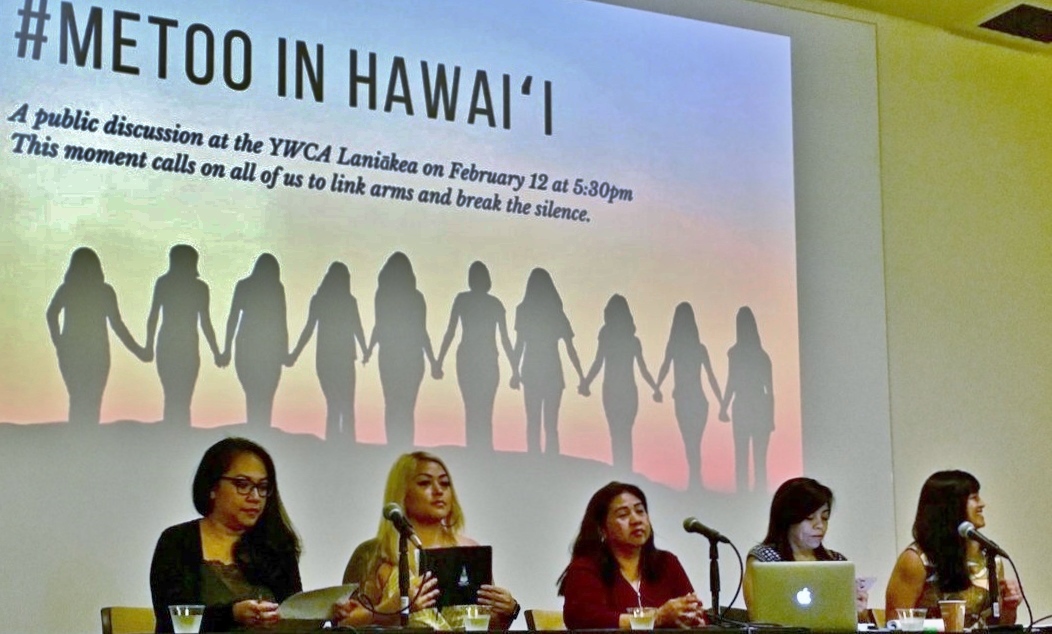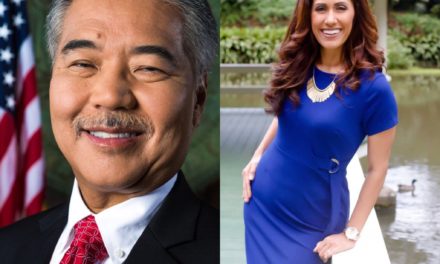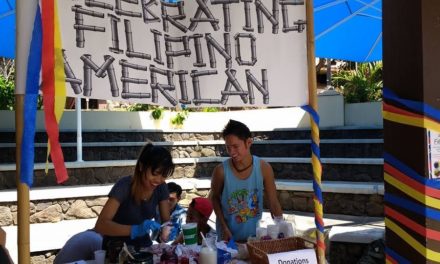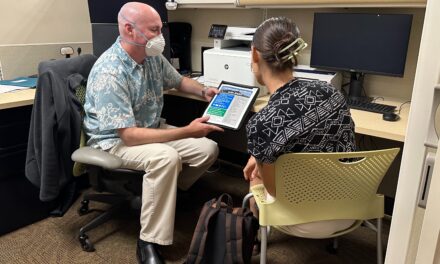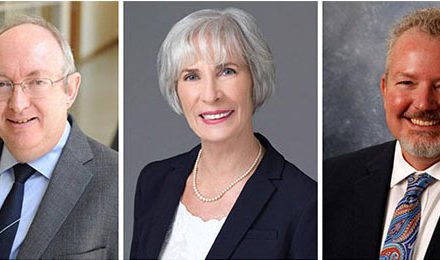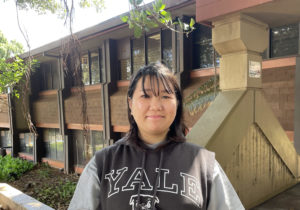Katlin Cilliers | Staff Writer
Silence took over the conference room as Nadine Ortega, founder of Af3IRM Hawaiʻi, spoke of her family’s experiences as survivors of sexual abuse. The feminist activist’s voice trembled for a few seconds before growing steadier and stronger as she went on with her story. While she was in graduate school, Ortega sought to trace back her ancestry and family history. Curious to find out who her grandfather was, she learned that her grandmother had been raped and, as a result, pregnant with Ortega’s mother.
“This violence runs in my blood,” she said, driving some of the hundred people gathered at the YWCA Honolulu to tears.
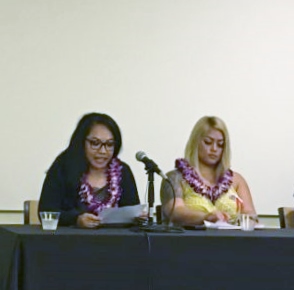
“Speaking out is a threat to the structural power of patriarchy,” said Nadine Ortega (left) during the #metoo discussions in Hawai’i. (Photo by Katlin Cilliers)
On Monday, Feb. 12, people gathered to understand where the state is at in terms of awareness and adherence to the #metoo movement. The event opened a safe space for sharing experiences, calling for empowerment and praising the victims’ courage to speak up.
“I experienced a lot of trauma in my life, and I was always silent,” Ortega said. “But the thing about stories is that, if we are silent, or we are not allowed to speak them, it is violent and destructive to our being. So, it is important to tell these stories, especially those who have been forced into silence or those who have been historically denied the chance to speak. While one story told one way can injure, a story told another way can cure.”
Gemma Weinstein, an immigrant worker who came from the Philippines, is an organizer at UNITE! Here and, as such, spoke on behalf of Hawaiʻi’s working class in the #metoo movement. She shared her story, which she’d kept secret for 27 years, that she was forced to watch a couple have intercourse as she was carrying out her duties as a hotel housekeeper.
Her words echoed in the room as she could no longer hold back her tears, recalling the incident as a source of emotional pain and guilt, as she blamed herself for what’d happened. She received a standing ovation upon the end of her narrative.
The #metoo movement aims to unveil female experiences of sexual harassment and abuse, and has spread across the country since the Harvey Weinstein scandal, which exposed the Hollywood producer’s sexual advances towards employees and actresses for the past 30 years. The story came to light in October 2017, first published by The New York Times. Since then, victims of harassment – in the shape of assault, discrimination or violence – have been encouraged to come forward and speak up on their experiences of abuse. Several have done so, hoping to obtain justice through the conviction of their perpetrators.
In Hawai’i, the event was mobilized by various organizations, such as Af3irm Hawaii, AAUW and UNITE! Here, and included panellists from diverse industries, offering unique perspectives to a common issue.
Naneo Lo, an undergraduate major in Interdisciplinary Studies at UH Mānoa, shared memories of being slut-shamed and humiliated by female colleagues in social media channels during her school years. Her story shed light on the idea that sexual harassment is not restricted to male-female relationships, and that universities and colleges are places where it often occurs.
“It’s important for people to stand up for what they believe [in],” she said.
She stated that, in her case, the University of Hawai‘i was especially helpful in mediating the conflict with the colleague, who was also a student employee. At the time, she decided not to pursue Title IX and forgave the offender, whom she respects.
“Students and faculty must be educated about #metoo,” she said.
The forum also involved a bit of tension – caused by a question one of the attendees asked.
Once the panel opened for questions from the audience, a man stepped up to ask, “How can men be educated as to when they are stepping over the line?” One woman was applauded when she raised her voice to say that he should “Educate himself” and went on to say, “Look at yourself. Because we’re not going to explain that to you.”
The situation got a bit heated when he responded back: “How can I know if you feel offended by my actions if you won’t tell me?” At that point, one of the moderators had to intervene when other attendees – including other men – started booing and demanding him to “put down the microphone.”
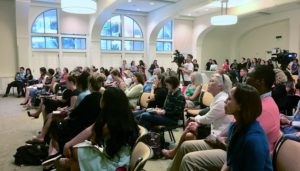
About a hundred people joined the ranks of #metoo movement on O‘ahu this Monday. (Photo by Katlin Cilliers)
When it comes to the legal definition of what constitutes sexual harassment, the matter becomes subjective. According to Jennifer Rose, an attorney and director of the office of Institutional Equity at UH Mānoa and a speaker at the forum, it all boils down to perception, rather than intention.
“#Metoo is not [a matter of] whether what happened to you violated a policy or law,” Rose said. “It is about sexual expectations. We are talking about behavior and expectations that happen in the workplace and academia, in education, that is humiliating and degrading.”
Rose also said that sexual harassment “has to be unwanted, sexual in nature and present features of quid pro quo, whether or not it violates the policy of your work or the federal or state law.”
Upon refusal, any punishment or removal of benefits would constitute signs of harassment.
Above all, though, Ortega reinforced the strong need for women to unite and speak out regarding unacceptable behavior.

